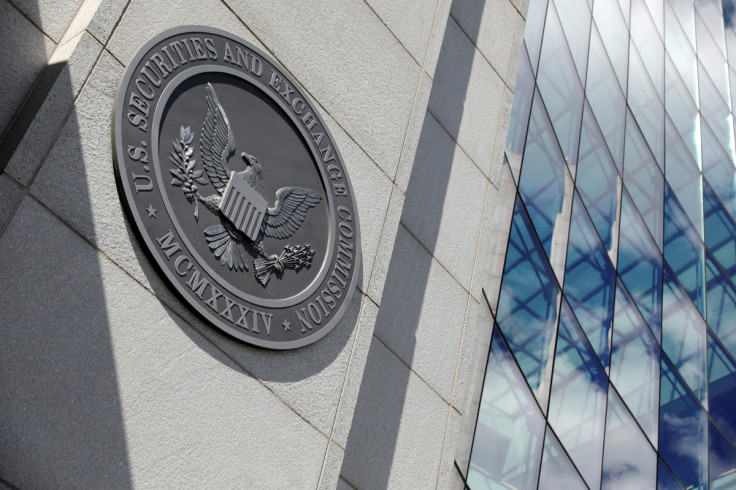Kill Bill: Biden Administration Vows To Veto Resolution Overturning Controversial SEC Bulletin

KEY POINTS
- The Biden administration said the resolution limits the SEC's work in protecting investors
- Rep. McHenry said SAB 121 was 'cost prohibitive' for custody firms
- Rep. Flood said the bulletin was not the right avenue to promote custodial accounting guidance
The House of Representatives on Wednesday passed a resolution to repeal a highly controversial Securities and Exchange Commission (SEC) bulletin that placed certain guardrails on firms that offer cryptocurrency custodial services.
During Wednesday's vote, House representatives voted 228-182, with mostly Republicans, and only 21 Democrats voting in favor of the resolution to strike down the SEC's Staff Accounting Bulletin 121 (SAB 121).
Final House vote tally on repealing SAB 121: 207 Republicans and 21 Democrats in favor. #RepealSAB121 pic.twitter.com/gWF7pMGRNH
— Rep. Mike Flood (@USRepMikeFlood) May 8, 2024
"Staff Accounting Bulletin 121 is one of the most glaring examples of the regulatory overreach that has defined [SEC Chair] Gary Gensler's tenure at the SEC," said House Financial Services Committee Chair Patrick McHenry after the vote. He said SAB 121 was "cost prohibitive" for crypto custody service providers, as the bulletin requires such firms to hold their clients' digital assets on their balance sheet.
Rep. Mike Flood, R-Neb., who introduced the resolution, said President Joe Biden's government has been testing "the limits of" the public rulemaking process, with the controversial SEC bulletin being a prime example. "It set a disturbing precedent and is not the appropriate vehicle to promulgate accounting guidance for digital asset custodians," he said.
Since President Biden took office, his administration has made it a point to test the limits of, and take shortcuts around, the public rulemaking processes. Staff Accounting Bulletin, or SAB 121, is one such example.
— Rep. Mike Flood (@USRepMikeFlood) May 8, 2024
It set a disturbing precedent and is not the appropriate vehicle to promulgate accounting guidance for digital asset custodians. I appreciate the broad support of my colleagues in the House for H.J. Res. 109 and urge the Senate to take action to deliver a full repeal of SAB 121.
— Rep. Mike Flood (@USRepMikeFlood) May 8, 2024
While Republicans rallied to get as many votes as possible, the president's office released a statement several hours ahead of the vote, saying the Biden administration "strongly opposes" the passage of Flood's H.J. Res 109 as it would "disrupt" the SEC's "work to protect investors in crypto-asset markets and to safeguard the broader financial system.
The statement said the resolution would limit the SEC's ability to maintain financial regulatory oversight for digital assets and would introduce "substantial financial instability" and, ultimately, uncertainty in financial markets. The administration went on to vow that if the resolution reaches Biden's table, "he would veto it."
House Majority Whip Tom Emmer, R-Minn., said ahead of the vote that the "illegal" SAB 121 puts American crypto holders "in a vulnerable position."
Today, we will vote to overturn @GaryGensler’s illegal SAB 121 rule.
— Tom Emmer (@GOPMajorityWhip) May 8, 2024
This rule prevents banks from safeguarding digital assets for their customers, which only increases concentration risk in our market and puts American digital asset holders in a vulnerable position.
Meanwhile, other lawmakers who voted in favor of the resolution have shared their thoughts on X (formerly Twitter). Rep. John Rose, R-Tenn., said Gensler attempted to bypass law-making processes when he released SAB 121 in 2022. He said the "unconstitutional" move was to avoid feedback from the public and the law-making system.
.@SECGov Chairman Gensler tried to pull a fast one by sneaking an unconstitutional rulemaking as "guidance" to avoid public feedback and Congress.
— Congressman John Rose (@RepJohnRose) May 8, 2024
I was proud to vote 'Yes' on H.J.Res. 109, which would stop this unconstitutional attempt, through SAB 121, in its tracks. https://t.co/ISTJiKd5Ty
Holding reserves against the assets held in custody is NOT standard financial services practice.
— French Hill (@RepFrenchHill) May 8, 2024
The Biden Admin's SAB 121 is misguided and should be nullified. I thank @USRepMikeFlood for his excellent work in leading a CRA resolution to roll back the SEC's failure in their… pic.twitter.com/jwaTYWxhXs
Rep. French Hill, R-Ark., pointed out that the bulletin was not just about cryptocurrencies. "This is a sweeping rule that the SEC has implemented without following the Administrative Procedure Act." He went on to say that the bulletin was just another attempt by the Biden government "to treat digital assets differently from all other assets."
© Copyright IBTimes 2024. All rights reserved.












